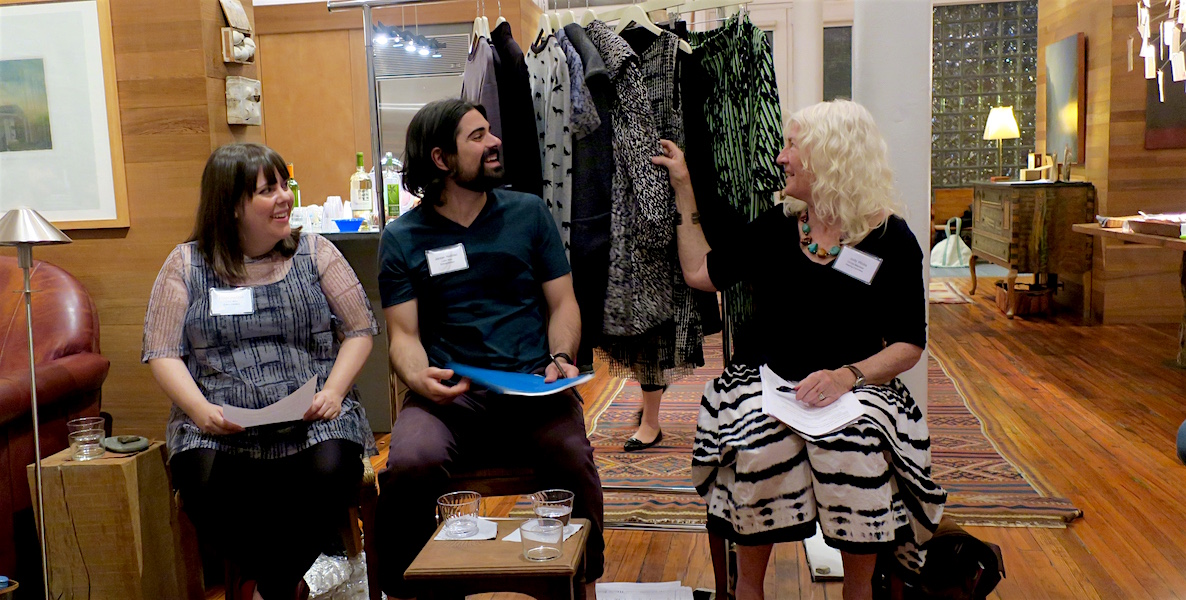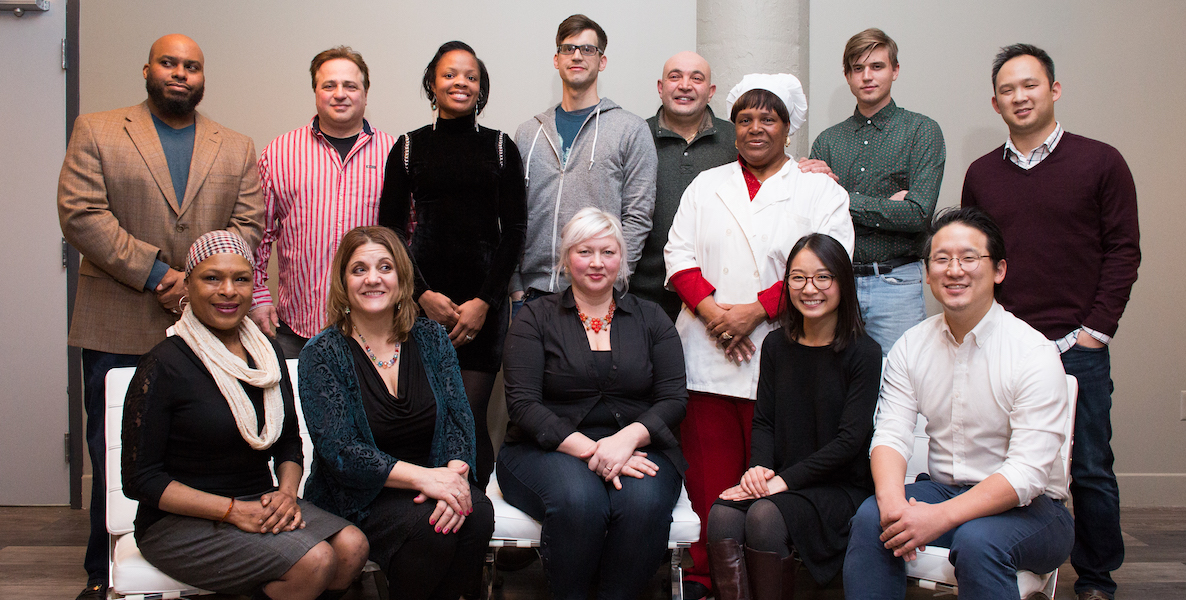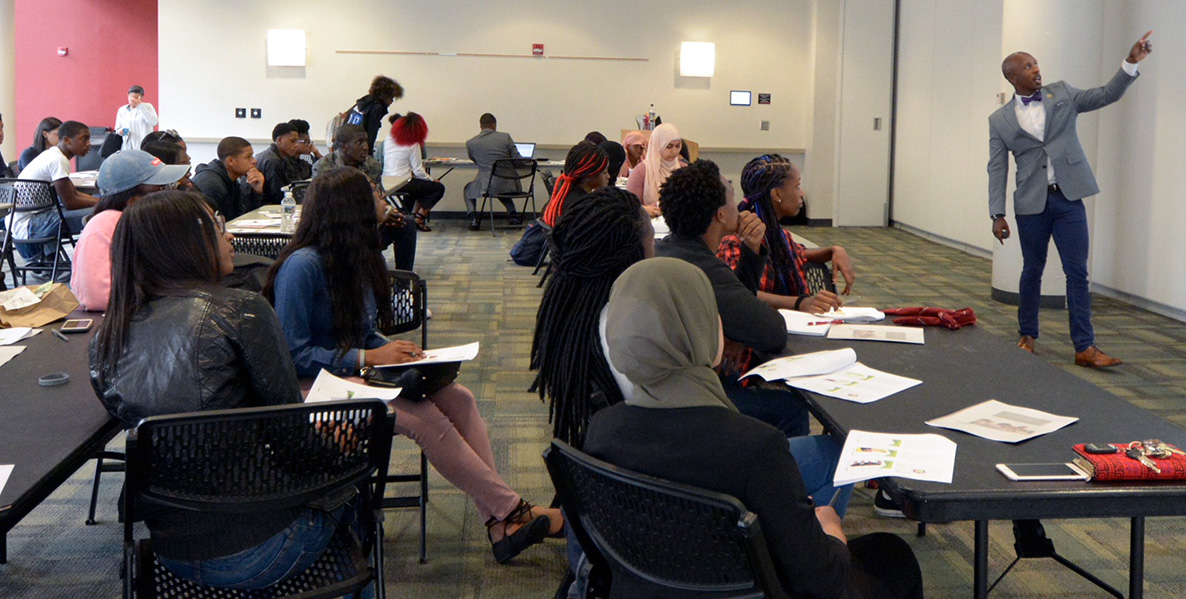Back in the early aughts, Jay Coen Gilbert was one of the cofounders of AND1, the in-your-face, groundbreaking basketball apparel company that, at its peak, posted revenues of $250 million and, for a time, positioned itself as the upstart alternative to Nike. When he and his partners sold the company in 2005, Gilbert, ever-inquisitive, went on a pilgrimage to find what’s next. And he settled on something rather audacious: Nothing less than remaking the very values that inform our economy. You know, something doable.
Now, more than a decade later, he is a breathless evangelist for the power of business to do good. B Lab, the nonprofit Coen Gilbert co-founded, has jumpstarted the international B Corp movement. B Lab’s insignia—the B stands for Benefit—confers a type of Good Housekeeping Seal of Approval when it comes to social responsibility for its more than 2,300 member companies in 50 countries, including well-known brands such as Patagonia, Ben & Jerry’s and Kickstarter. More recently, women’s athletic apparel retail chain Athleta has signed on, as has Participant Media, the film production company founded by EBay cofounder Jeff Skoll to make movies that advance social change. (Among Participant’s award-winning efforts was Al Gore’s An Inconvenient Truth.)
Moreover, B Lab does more than just measure companies’ social impact performance. It helped create a new type of company, the B Corp, which extends members’ fiduciary responsibility beyond just shareholders, to stakeholders such as employees, the environment and the surrounding community.
![]()
As outlined in a Harvard Business Review article headlined “Why Companies Are Becoming B Corporations”, the rise of B Corp Nation represents nothing less than a radical reimagining of the values that inform capitalism. B Corp firms, the study’s authors write, “believe ‘the major crises of our time are a result of the way we conduct business,’ and they become a B Corporation to ‘join the movement of creating a new economy with a new set of rules’ and ‘redefine the way people perceive success in the business world.’”
In other words, the rise of the triple bottom line—people, profit, and planet—is more than a slogan. It’s a way to bring purpose to the business of business, and proof that egalitarian values and capitalism need not be mutually exclusive, a much-needed prescription for economic reform at a time when the political blame game would have us believe that our choices for economic growth are solely between socialism and Ayn Rand-fueled corporate greed. Now that innovations like B Corps, impact investing, and social impact bonds are ascendant in the zeitgeist, the notion that business can be a force for good—“Conscious Capitalism”—is fast becoming a settled issue. It’s something Coen Gilbert saw over a decade ago, when he first started talking about “solutions capitalism.”
The rise of the triple bottom line—people, profit, and planet—is more than a slogan. It’s a way to bring purpose to the business of business.
“If we just wait for government to solve our problems, or hope that charities and NGOs will fill the gaps, we’re delusional,” Coen Gilbert, a pragmatic progressive, once told me. “Government and nonprofits are necessary but insufficient to the task. The action is in the marketplace, and the question I focused on was, ‘Can you use market forces for a higher purpose beyond just amassing personal wealth?’”
When Gilbert and his college-buddy partners, Bart Houlahan (the former ![]() president of AND1) and Andrew Kassoy first created B Lab, they realized there was no credible way for consumers to judge companies’ claims to be socially responsible. They came up with an impact assessment test companies can take that covers roughly 200 factors, ranging from how a company treats its employees to how green its buildings are to how often it buys local products and supplies. That data separates companies that really are doing good from those that simply practice good marketing.
president of AND1) and Andrew Kassoy first created B Lab, they realized there was no credible way for consumers to judge companies’ claims to be socially responsible. They came up with an impact assessment test companies can take that covers roughly 200 factors, ranging from how a company treats its employees to how green its buildings are to how often it buys local products and supplies. That data separates companies that really are doing good from those that simply practice good marketing.
But B Lab didn’t stop with performance standards. They took the mission into the legal realm, because they were quick to learn that systemic reasons—codified into the law—lay behind our economy’s “greed is good” corporate ethos. Coen Gilbert attended an academic gathering and heard an author hold forth on the deleterious effects of “shareholder primacy”: If a company’s sole fiduciary relationship is to its shareholders, if nothing else matters but the return on their investment, you get what we’ve gotten—companies that move factories overseas to increase profits and founding entrepreneurs who live in fear of shareholder revolt.
B Corps, it turns out, were 63 percent more likely to survive the Great Recession and a surveys show that nearly 8 of 10 millennial consumers want to do business with companies that share their values.
So B Lab helped create a new legal category of company—a B corporation—that expands the fiduciary responsibility to stakeholders such as employees, neighbors, and the environment.
“Until B Corps, corporate law said you are free to think of any way that’s legal to make as much money as possible, but you have to justify everything to that one single end—shareholder return,” Coen Gilbert says. “That’s pretty restrictive. B Corp allows you to be innovative around not only the means by which you seek your ends, but also about the ends that you seek. If you believe in free enterprise, you should be able to choose the purpose for which you’re freakin’ busting your butt. For a lot of us, that’s our employees and our neighbors, as well as our investors.”
Why have B Corps taken off? In part, because Coen Gilbert and his partners are capitalists themselves; they’ve built and sold companies, so when they approach entrepreneurs about, as Gilbert says, “widening the aperture of their lens,” they have more credibility than an anti-business activist.
They also have a compelling bottom-line argument to make: B Corps, it turns out, were 63 percent more likely to survive the Great Recession and surveys show that nearly 8 of 10 millennial consumers want to do business with companies that share their values. Business leaders who may not agree with Coen Gilbert’s political preferences nonetheless have become convinced that it’s in their bottom-line self interest to be a good corporate citizens.
“It’s a settled issue already,” Center City philanthropist and venture capitalist Richard Vague once told me. “Almost every start-up that comes to see me founded by twentysomethings is already committed to being a B Corp. They’re almost like, Why wouldn’t we be?”
No wonder that none other than former Secretary of State Madeline Albright has proclaimed that “the B Corp movement shows us that business can be an agent of change,” and Esquire magazine predicted that “B Corps might turn out to be like civil rights for blacks or voting rights for women, eccentric unpopular ideas that took hold and changed the world.”
Among B Lab’s latest efforts are its annual Best For The World Honorees—championing those companies that are leading the way in balancing doing well with doing good, which includes 17 local award-winners—and its Inclusive Economy Challenge, which has led participating companies to increase the diversity and inclusion of their workforces and supply chains.
Next Wednesday night, at our “Citizen Speaks: Business For Good” event, Coen Gilbert will talk about these initiatives and his vision for, as he puts it, “a more inclusive, resilient, and sustainable” economy with three other similarly audacious entrepreneurs: Lisa Skeete Tatum of landit.com, Todd Carmichael of La Colombe, and Emmet Dennis of Sundial Brands. They’ll compare notes on the opportunities and challenges in building purpose-driven workplaces. They won’t look like revolutionaries, but make no mistake: All are radically rethinking just what it means to be in business in America, 2018.








